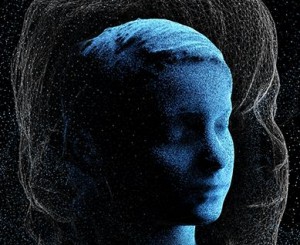Created by RICK SMOLAN and JENNIFER ERWITT
This is another coffee table book that is worth taking a look at. DATA is an ambitious and attractive new large-format book that aims to give readers, through photography and short articles, a glimpse of how powerful new data processing capabilities are changing people’s lives. Big data is concerned with how modern technology allows us to generate, store and process information on a massive scale. For example, Eric Schmidt, executive chairman of Google, said in 2010 “there were five exabytes of information created between the dawn of civilization through 2003, but that much information is now created every two days, and the pace is increasing.” (one exabyte is a staggering 1,073,741,824 gigabytes.)
J. Craig Venter gained fame for sequencing the humane genome, but he is now using big data tools to create organisms through gene manipulation. His team at Synthetic Genomics has synthesized an entire bacterial genome and introduced it into a cell — as Venter says, “It was the first self-replicating species on the planet whose parent was a computer.” New Jersey physician Dr. Jeffrey Brenner used data analysis to tackle one of the U.S.’ biggest problems: rising health care costs. Using a database of 600,000 hospital visits, he built a map linking claims to patient’s addresses. He found that just 1 percent of patients were responsible for 30 percent of hospital bills. Driven by that information, he founded the Camden Coalition of Healthcare Providers, which dispatches caseworkers to make home visits to the patients with the most problems. The aim is to help patients stay on their medications and out of the emergency room. The New York City Police Department’s Domain Awareness System (DAS) allows officers to access and aggregate data from a broad range of sources: 3,000 surveillance cameras, license plate readers, radiation detectors, 911 calls, arrest records, crime reports and files of data on individuals’ personal characteristics from tattoos to limps. NYPD Commissioner Raymond Kelly has called DAS “one-stop shopping” for investigators.
Data is interesting, positive and beautiful but lacks and discussion on the possible downside of all this data being collected on us all..
